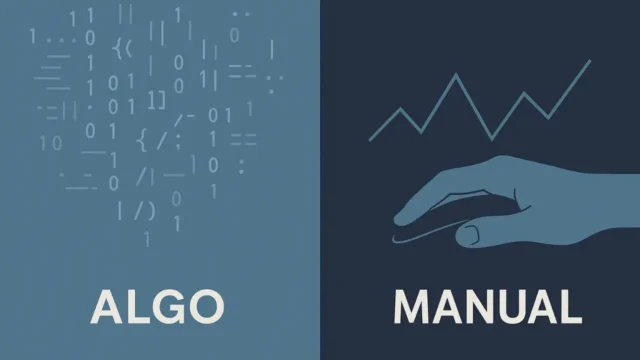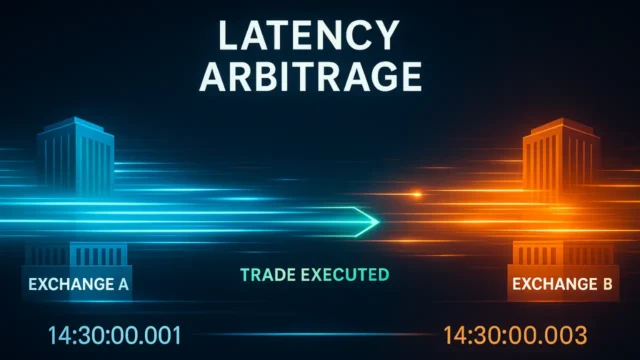Follow Us
AI in Trading: Can a Machine Learn to Beat the Market?

Imagine a room filled with humming servers, analyzing millions of data points every second, while traders in suits sit biting their nails.
That’s the world of AI in trading, a blend of high-tech precision and old-school market drama.
But here’s the million-dollar question: Can machines consistently beat the market?
Let’s break it down.
The Rise of AI in Trading
Once upon a time, trading was all about shouting across a noisy stock exchange. Now, algorithms quietly execute trades in milliseconds.
AI has taken this to the next level, combining machine learning, natural language processing (NLP), and predictive analytics to spot opportunities faster than any human ever could.
Take high-frequency trading (HFT), for example.
These AI-driven strategies use algorithms to execute thousands of trades in fractions of a second, profiting from minuscule price differences.
Or consider sentiment analysis, where AI scans social media, news articles, and even Reddit threads to predict how markets might react to breaking news.
But don’t get too excited just yet. The “AI beats the market” story isn’t as simple as it sounds.
Why Beating the Market Is Tougher Than It Looks
First, let’s debunk a myth: The market is not some easy to crack code.
It’s a chaotic mix of human emotion, global events, and economic indicators.
Even the smartest AI struggles to predict every twist and turn.
Here’s why:
- Markets Are Efficient (Mostly): The Efficient Market Hypothesis (EMH) suggests that stock prices already reflect all available information. In other words, there’s no “secret data” for AI to uncover.
- The Black Swan Problem: AI relies on historical data to make predictions. But what happens when something unprecedented, like a pandemic or a sudden geopolitical crisis – shakes the market? Machines can’t anticipate what they’ve never seen.
- Competition Is Fierce: Every hedge fund worth its salt is deploying AI. It’s a tech arms race, and when everyone’s using similar tools, it gets harder to gain an edge.
The Edge AI Can Offer
Despite these challenges, AI isn’t useless. Far from it. Machines excel in areas where humans fall short:
- Data Crunching at Scale: AI can process vast amounts of data from diverse sources like earnings reports, satellite images, weather patterns – faster than any human ever could.
- Emotionless Decisions: Fear and greed drive human traders. AI, on the other hand, doesn’t panic during market crashes or get overconfident in bull runs.
- Pattern Recognition: AI can spot subtle correlations and trends that might be invisible to human eyes. For example, noticing how specific commodities react to obscure currency fluctuations.
Can AI Ever Fully Replace Human Traders?
Here’s the reality: AI isn’t replacing humans; it’s reshaping their roles. Traders now spend less time analyzing charts and more time interpreting algorithmic outputs.
Think of it as a partnership; humans bring intuition and creativity, while machines handle speed and scale.
Consider this: AI might flag a potential opportunity, but it can’t weigh the moral or ethical implications of certain trades.
It can’t anticipate how investors might emotionally react to unexpected news. And it certainly can’t call your bluff in a negotiation.
What Does This Mean for Everyday Investors?
For retail investors like you and me, the rise of AI has democratized access to sophisticated tools.
Robo-advisors use AI to create personalized portfolios, rebalance investments, and minimize tax impacts.
These tools, once reserved for institutional investors, are now available at the click of a button.
But here’s the kicker: You can’t outsource common sense. No matter how smart the algorithm, you still need to:
- Understand Your Goals: AI can’t decide if you’re saving for a house or planning for retirement.
- Diversify: Algorithms might suggest concentrated bets, but spreading your risk is always a smart move.
- Stay Educated: Technology evolves, but financial principles like compounding and risk management remain timeless.
So, can AI beat the market? Sometimes. But consistently? That’s another story.
Markets are unpredictable, and while AI brings speed and precision, it’s not infallible. The best approach?
Use AI as a tool, not a crutch. Pair its insights with your judgment, and you might just come out ahead.
In the end, the market isn’t a game of machines vs humans. It’s about who can adapt, learn, and stay one step ahead, whether you are powered by caffeine or code.
Disclaimer:
This content is for informational purposes only and should not be considered financial advice.
Read full Disclaimer.




